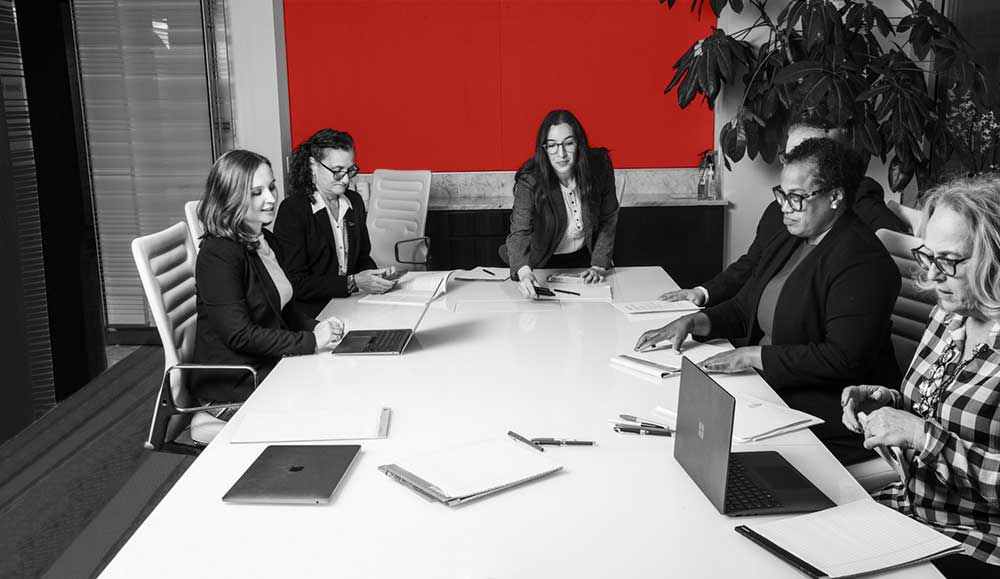A company’s bankruptcy filing triggers the Bankruptcy Code’s “automatic stay,” which broadly prevents creditors from pursing claims against the bankrupt debtor. So does the automatic stay, set out in Section 362 of the Bankruptcy Code, 11 U.S.C. §362, shield an employer in Chapter 11 bankruptcy from grievances, arbitrations or unfair labor practice charges? Fortunately for unions, the answer is generally no.
NLRB proceedings can go forward by virtue of the exception to the automatic stay set out in Section 362(b)(4) of the Bankruptcy Code. That provision allows a government entity, in the exercise of its “police and regulatory power,” to pursue an action or proceeding against a debtor. Although a union or employee filing an unfair labor practice charge is not a government entity, the filing of the charge initiates the NLRB proceeding, and cases have repeatedly held that NLRB proceedings fall within the protection of the “police and regulatory power” carve-out to the automatic stay. See, e.g., NLRB v. 15th Avenue Iron Works, Inc., 964 F.2d 1336, 1337 (2d Cir. 1992) (collecting cases); NLRB v. Ctr. Constr. Co., 2013 WL 1858213 (E.D. Mich. 2013). Indeed, as early as 1942, the Third Circuit held that the status of an employer in bankruptcy “is no different, so far as the National Labor Relations Act … is concerned, than that of any other employer.” NLRB v. Baldwin Locomotive Works, 128 F.2d 39, 43 (3d Cir. 1942). Unions and employees, therefore, should not shy away from filing a meritorious labor board charge simply because the company has filed for bankruptcy.
However, while NLRB proceedings may go forward to establish that a bankrupt employer committed unfair labor practices, the collection of any back pay or other monetary remedies must, absent special permission from the bankruptcy court, take place in bankruptcy court and in accord with the Bankruptcy Code’s claims procedures. (Note that under Section 503(b)(1)(A)(ii) of the Bankruptcy Code, claims arising from NLRB back pay awards may enjoy administrative priority status if the back pay is attributable to any period after the company filed for bankruptcy.)
As for grievances, so long as a union’s collective bargaining contract remains in effect and has not been rejected by the bankrupt employer, a union or employee can pursue grievances under the contract’s grievance-arbitration procedure. The lead case here is the Second Circuit’s decision in Ionosphere Clubs, Inc. v. Air Line Pilots Ass’n, 922 F.2d 984 (2d Cir. 1990). In Ionosphere, the court relied on Section 1113(f) of the Bankruptcy Code, 11 U.S.C. §1113(f), which prohibits a bankrupt employer that has not rejected a collective bargaining agreement from unilaterally terminating or altering any provision of the agreement. The Second Circuit reasoned that the automatic stay does not bar an arbitration since applying the stay “would allow a debtor unilaterally to avoid its obligation to arbitrate.” Courts have consistently followed Ionosphere’s reasoning in allowing arbitrations to proceed against bankrupt employers. See, e.g., Chestnut Hill Rehab Hosp., LLC, 387 B.R. 285, 289-90 (Bankr. M.D. Fla. 2008); Fulton Bellows & Components, Inc., 307 B.R. 896, 903-04 (Bankr. E.D. Tenn. 2004).
While unions may pursue grievances against bankrupt employers up to and through arbitration, once they obtain a grievance settlement or arbitration award in their favor, they generally may only obtain payment via the bankruptcy court’s claims procedure. One exception: where the bankrupt company “assumes” (agrees to accept) the collective bargaining agreement, either in its original form or as modified after negotiations, grievance settlements and arbitration awards will often be paid in full in the ordinary course, outside of the bankruptcy claims procedures.
